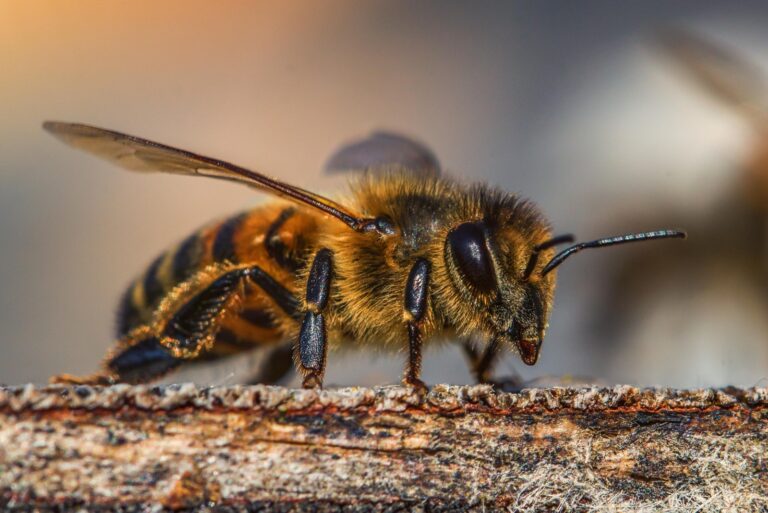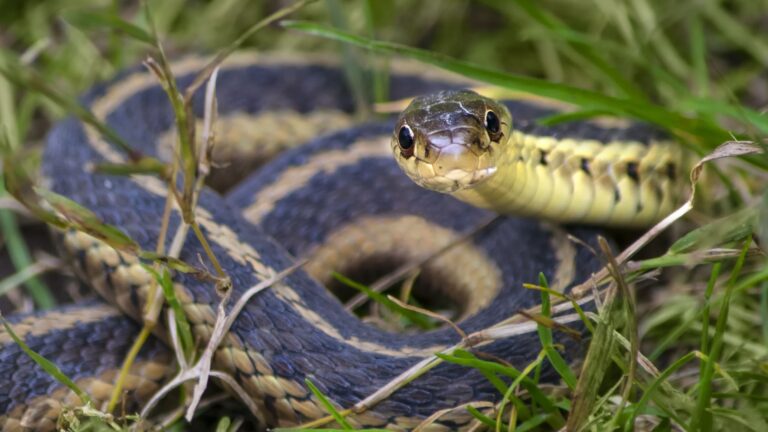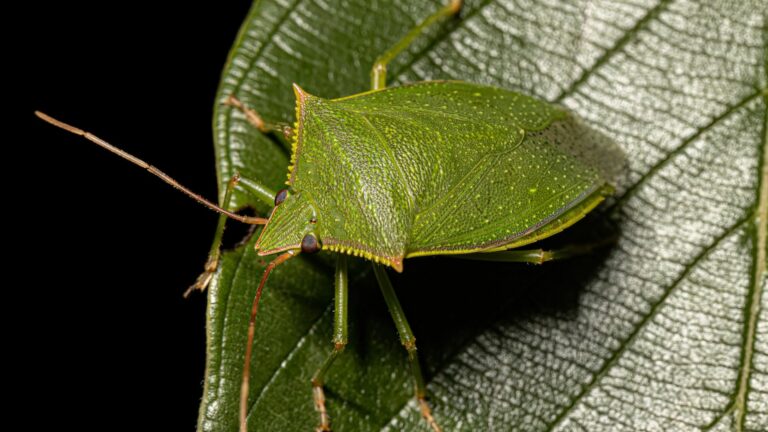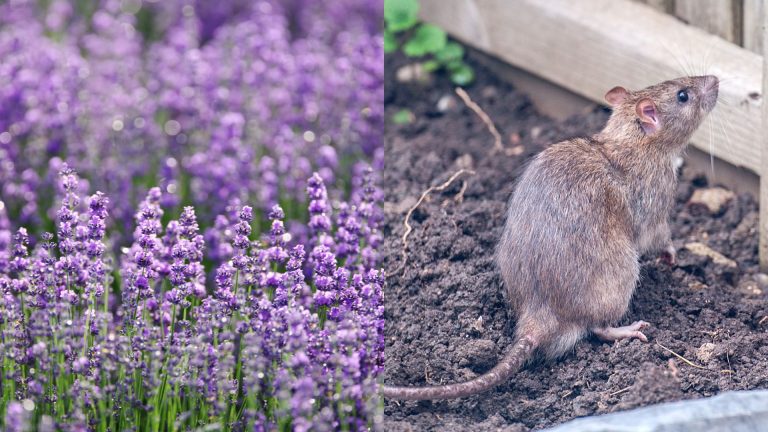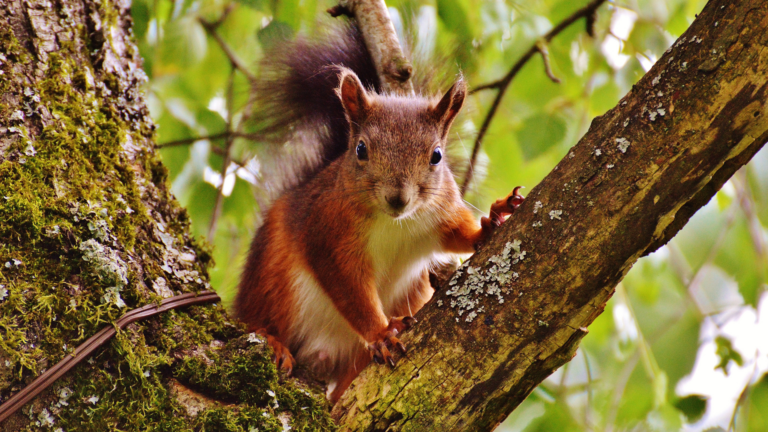13 Potted Plants That Protect Your Patio From Mosquitoes (And 5 That Don’t Do The Job)
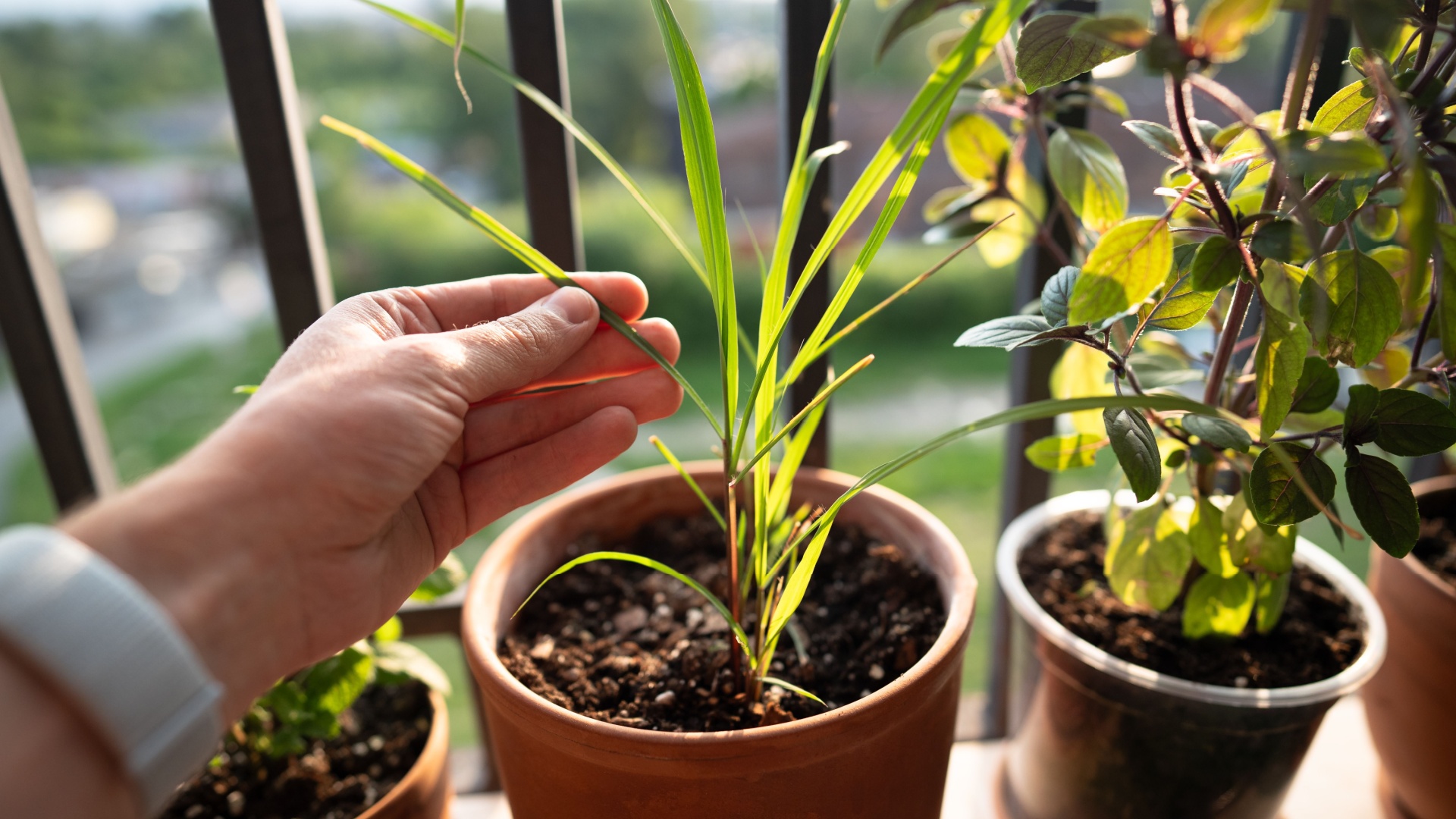
Tired of swatting away mosquitoes every time you try to enjoy your patio? The good news: nature has your back. Certain potted plants don’t just look great—they help repel those buzzing pests naturally.
But be warned: some so-called mosquito-fighters are more hype than help. Here are 13 potted plants that actually keep mosquitoes at bay—and 5 that just don’t cut it.
1. Citronella Grass: The Classic Mosquito Fighter
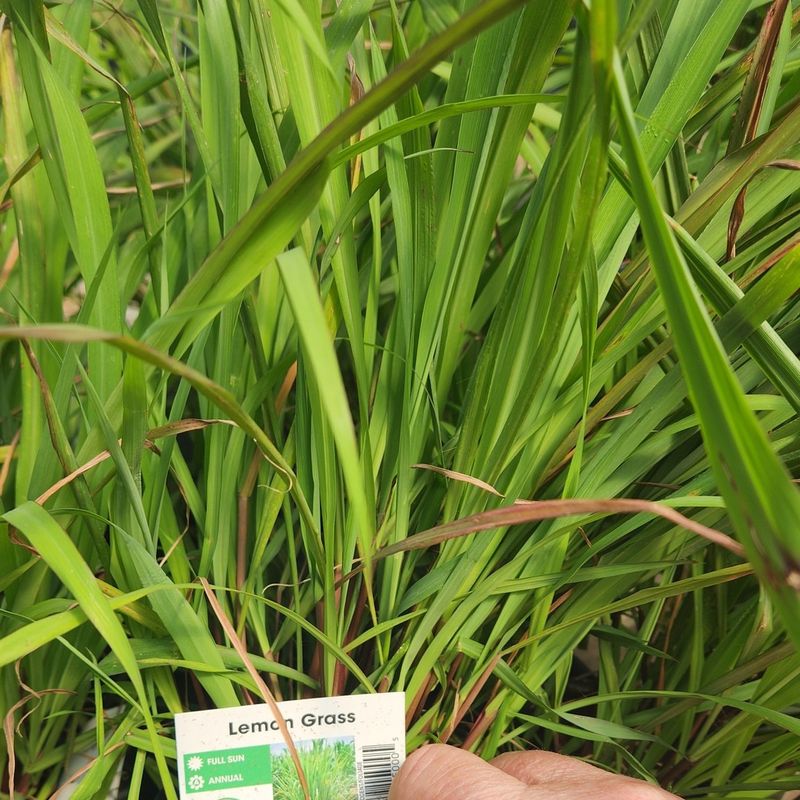
Lemongrass’s tall, grassy stalks contain citronella oil, the gold standard in natural mosquito protection. Growing 2-4 feet tall in containers, this tropical plant releases its distinctive lemony scent when brushed against or when a breeze blows through its leaves.
Place citronella grass in large pots near seating areas for maximum benefit. The plant thrives in full sun and warm temperatures, making it perfect for summer patios. Remember to bring it indoors when temperatures drop below 40°F.
2. Lavender: Beautiful Blooms With Bonus Protection
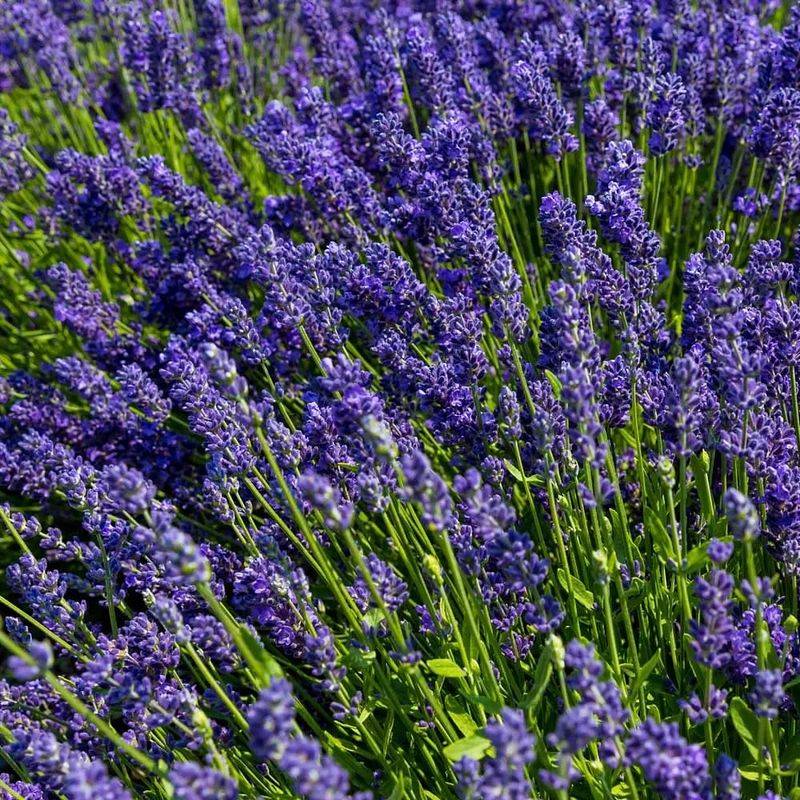
Purple flower spikes aren’t just gorgeous—they’re powerful mosquito deterrents! Lavender’s sweet fragrance might delight us, but mosquitoes absolutely hate it. English lavender varieties adapt particularly well to container growing.
Position lavender pots in sunny spots where people gather. The plant needs excellent drainage, so use terracotta pots with well-draining soil. As an added bonus, you can harvest sprigs to make sachets or infuse oils, bringing that mosquito-fighting power indoors too!
3. Rosemary: Culinary Herb With Protective Powers
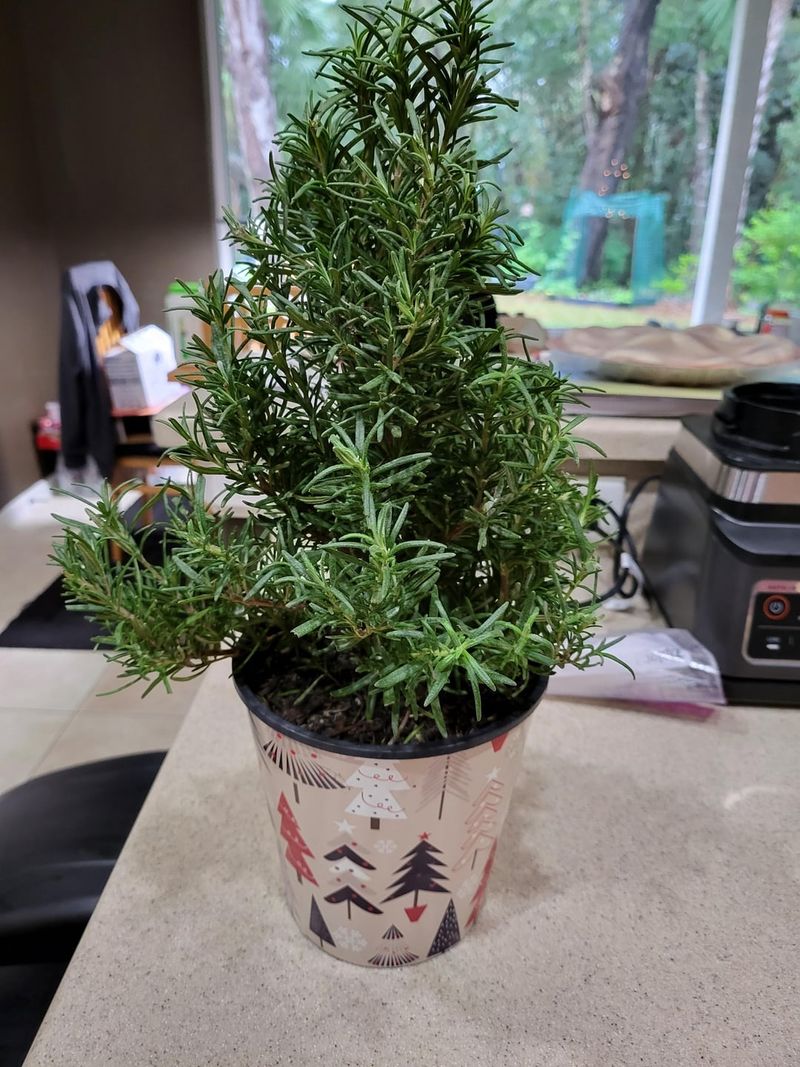
Cooking with fresh rosemary elevates summer meals, but this aromatic herb works double-duty by keeping mosquitoes away. The woody scent that makes rosemary so distinctive in cooking creates an invisible barrier against biting insects.
Grow rosemary in terracotta pots with sandy, well-draining soil. For maximum pest protection, place containers near doorways or around dining areas. During dinner, toss a few sprigs onto hot coals if you’re grilling—the smoke intensifies rosemary’s mosquito-repelling compounds!
4. Marigolds: Bright Blooms That Bugs Hate
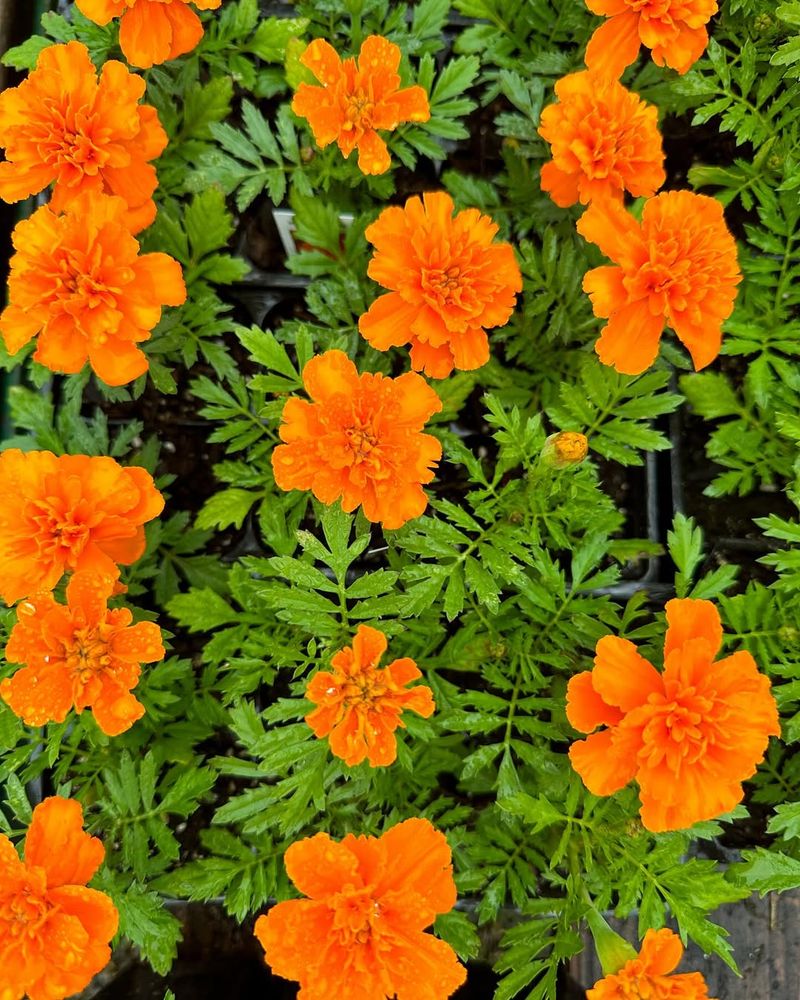
Cheerful orange and yellow flowers bring more than just color to your outdoor space. Marigolds contain pyrethrum, a compound used in many commercial insect repellents. Their strong scent masks the human odors that attract mosquitoes.
Plant marigolds in colorful pots and place them around the perimeter of your dining area. They thrive in full sun and don’t need much water, making them perfect low-maintenance guardians. French marigold varieties work especially well for mosquito control while adding vibrant pops of color.
5. Mint: Refreshing Herb That Mosquitoes Avoid
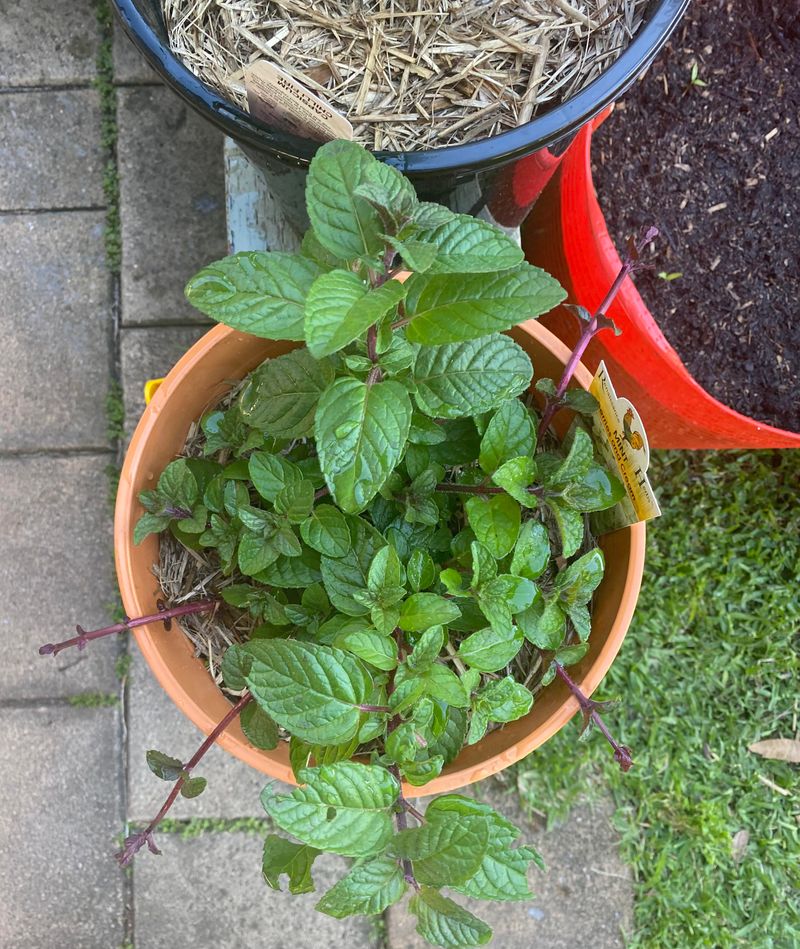
Mint’s invigorating scent might remind you of chewing gum or mojitos, but to mosquitoes, it signals danger. This easy-growing herb releases oils that confuse and repel these biting insects, creating a more pleasant outdoor environment.
Growing mint in containers is actually ideal because it prevents this aggressive plant from taking over your garden. Place mint pots near seating areas or doorways. Crushing a few leaves releases even more of the protective oils when guests arrive for dinner.
6. Basil: Kitchen Staple With Secret Powers
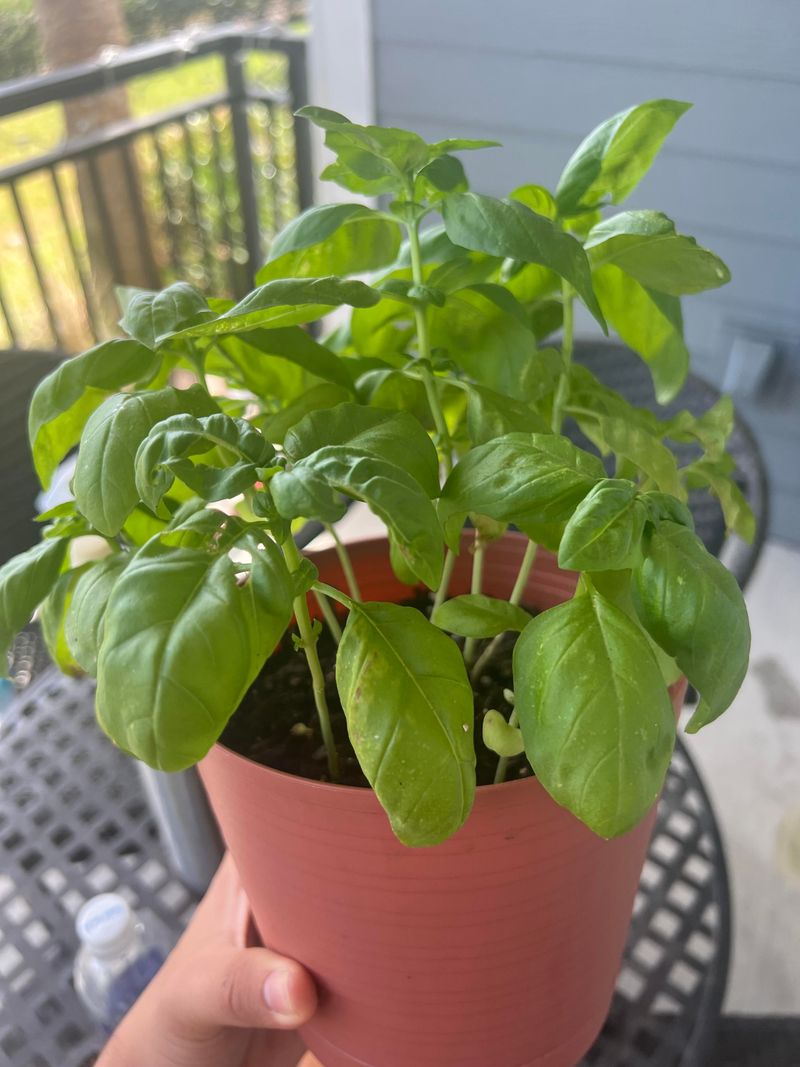
Most gardeners grow basil for Caprese salads and homemade pesto, not realizing it’s also a mosquito repellent powerhouse! The strong scent contains four volatile compounds that drive mosquitoes crazy—in a bad way.
Sweet basil, Thai basil, and lemon basil all work well. Keep pots in sunny spots near your dining table for easy culinary access and pest protection. Unlike many herbs, basil prefers consistently moist soil, so water regularly during hot weather.
7. Catnip: Drives Cats Wild And Mosquitoes Away
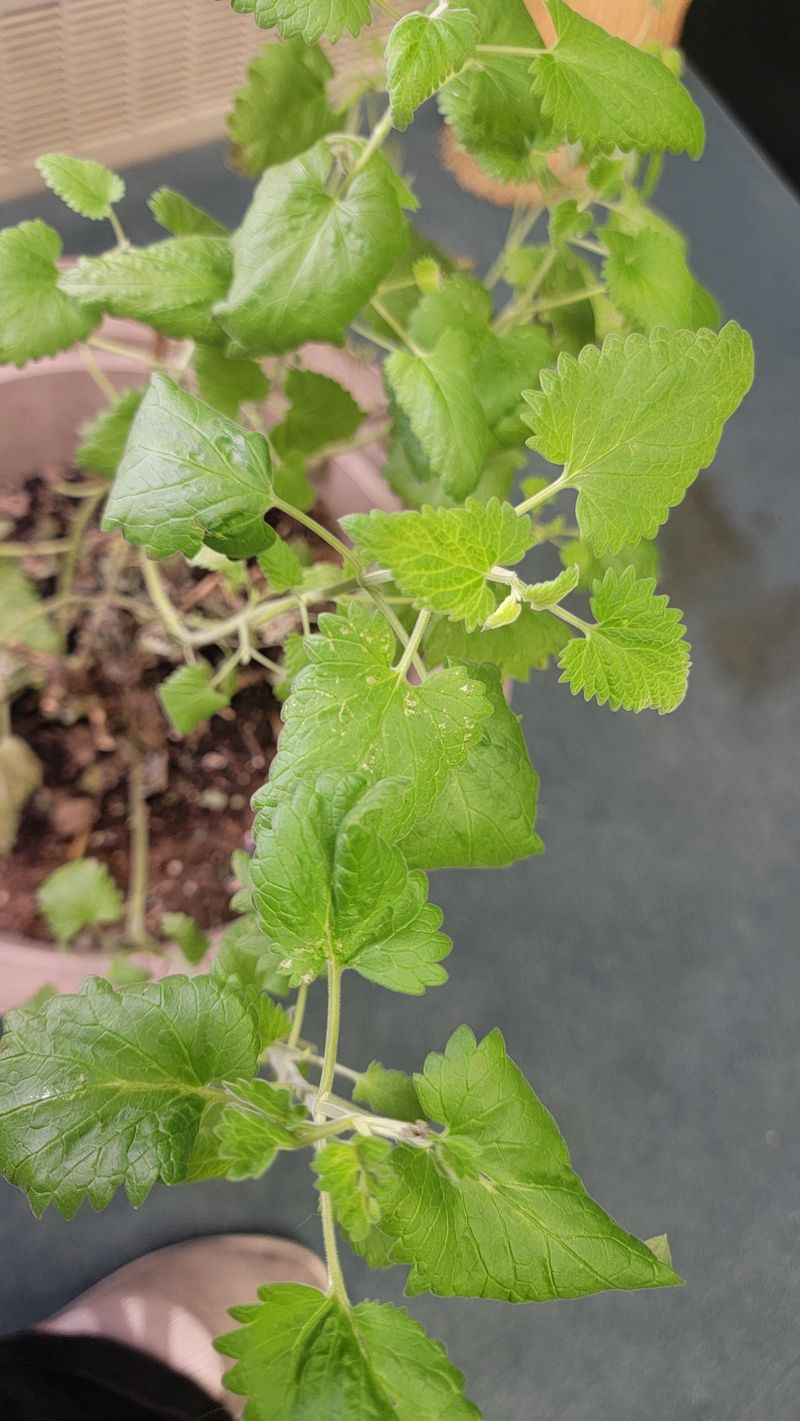
Your feline friends might go crazy for catnip, but mosquitoes have the opposite reaction! Research shows catnip can be ten times more effective than DEET at repelling mosquitoes. This member of the mint family produces nepetalactone, which triggers receptors in mosquito antennae.
Grow catnip in sturdy containers since cats may try to roll in it. Position pots strategically around seating areas, but perhaps not too close if neighborhood cats visit frequently! Catnip grows easily in partial shade to full sun conditions.
8. Lemon Balm: Citrusy Defender Against Biting Pests
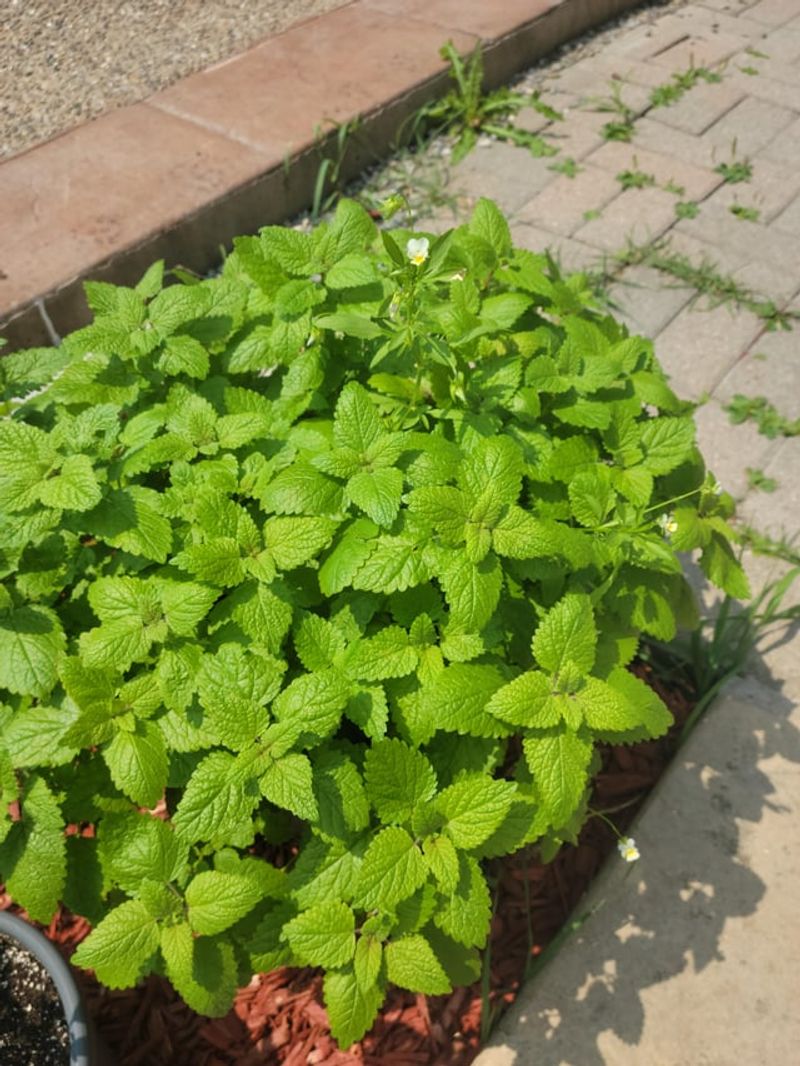
Crushing a lemon balm leaf releases a bright citrus scent that humans find delightful but mosquitoes find repulsive. This hardy perennial contains high levels of citronellal, similar to what’s in citronella candles but in its natural form.
Like its mint relatives, lemon balm grows vigorously, making containers perfect for controlling its spread. Place pots in partial shade in hot climates or full sun in cooler regions. Bonus use: steep fresh leaves in hot water for a calming tea to enjoy during your mosquito-free outdoor evenings.
9. Geraniums: Colorful Flowers With Protective Scents
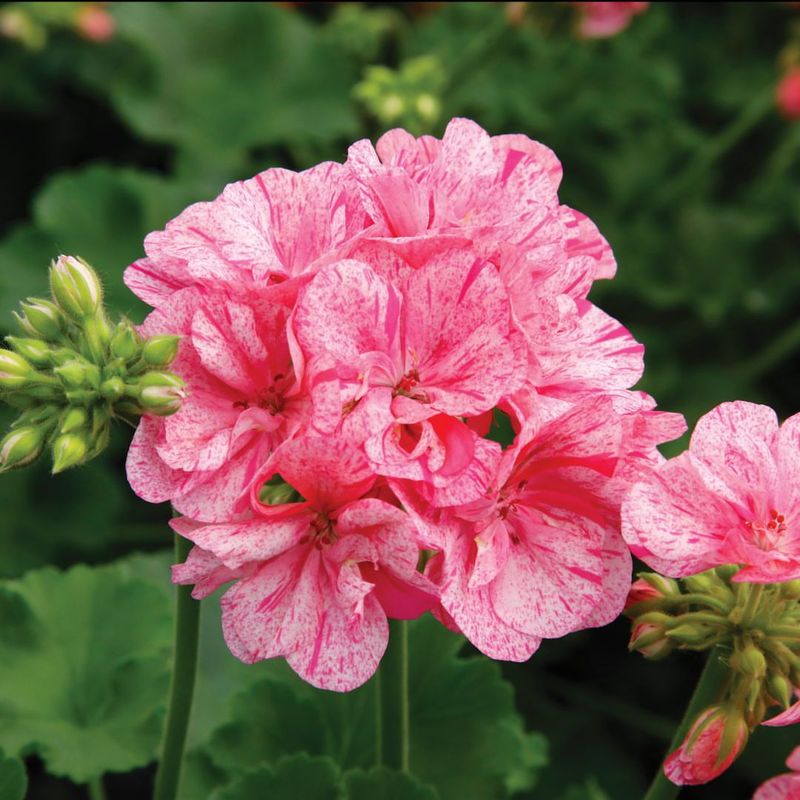
Scented geraniums (especially lemon-scented varieties) produce oils that mask the human scents that attract mosquitoes. Their pretty blooms come in various colors, making them decorative additions to any outdoor space.
Position geranium containers around dining areas or on tabletops as living centerpieces. They prefer at least 6-7 hours of sunlight daily and well-draining soil. Allow the soil to dry between waterings for best results.
10. Pennyroyal: Tiny Powerhouse Against Flying Pests
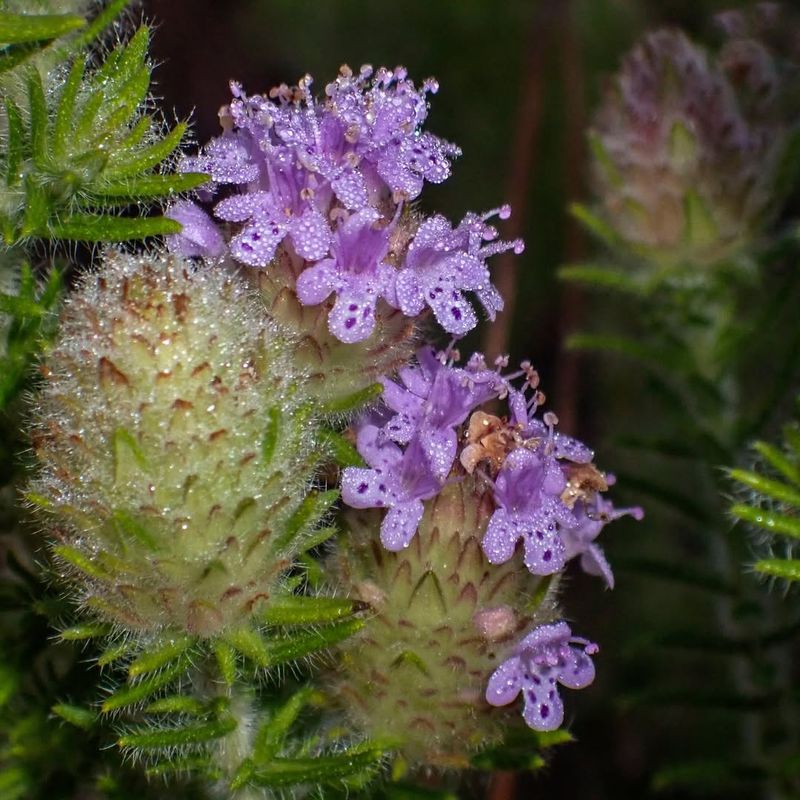
Small but mighty, pennyroyal packs a powerful punch against mosquitoes. This low-growing member of the mint family produces pulegone, a compound so effective that just brushing against the plant releases enough oil to repel insects.
Grow pennyroyal in hanging baskets or containers near seating areas. The cascading growth habit makes it perfect for placing on tables or shelves. Important safety note: While effective against mosquitoes, pennyroyal should not be ingested and should be kept away from pregnant women and pets.
11. Bee Balm: Attracts Pollinators, Repels Pests
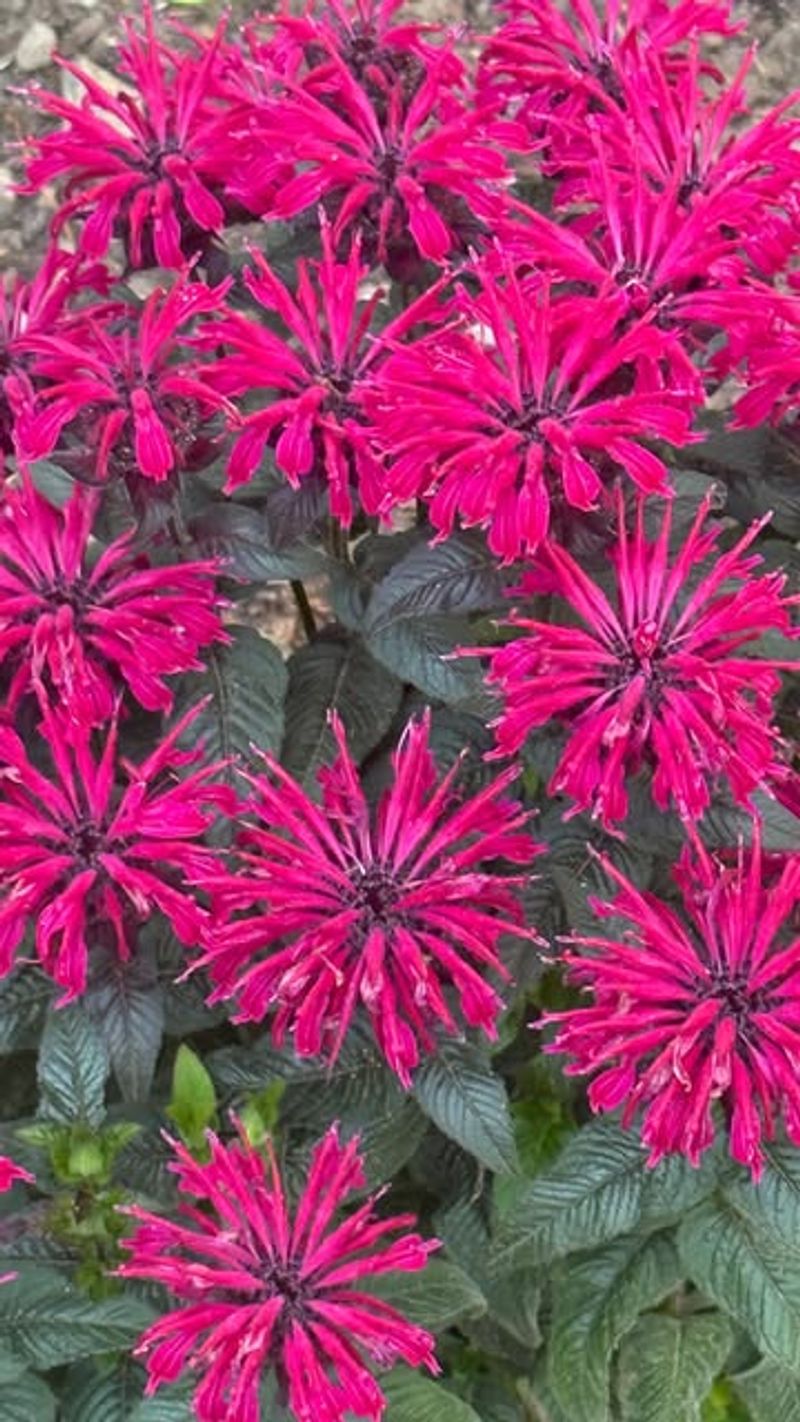
Vibrant bee balm flowers bring butterflies and hummingbirds to your garden while simultaneously keeping mosquitoes at bay. The fragrant foliage contains thymol, a compound with strong insect-repelling properties.
Grow bee balm in medium to large containers where it can receive morning sun and afternoon shade. The showy blooms add visual interest while the aromatic leaves work behind the scenes. Dwarf varieties like ‘Petite Delight’ are especially suitable for container growing.
12. Floss Flower (Ageratum): Pretty Blue Blooms With Purpose
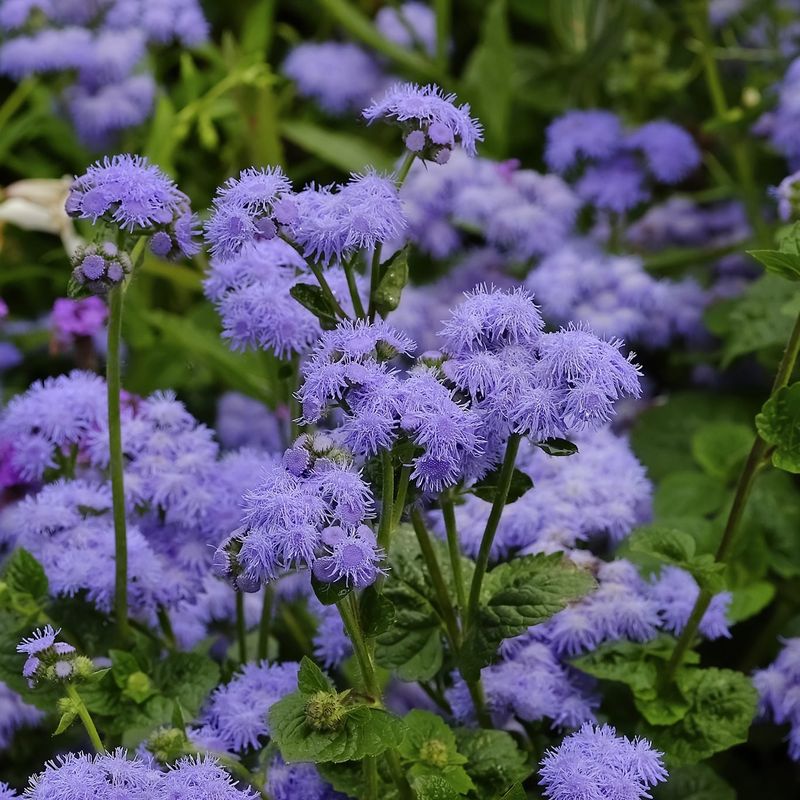
Fuzzy blue flowers aren’t just adorable—they’re mosquito fighters too! Ageratum produces coumarin, a compound used in many commercial mosquito repellents. The plant’s chemical composition interferes with mosquitoes’ ability to locate humans.
Plant floss flowers in containers placed near gathering spaces. They bloom continuously from spring until frost with minimal maintenance. Their compact size makes them perfect for tabletop containers or window boxes near outdoor dining areas.
13. Lantana: Tropical Beauty With Practical Benefits
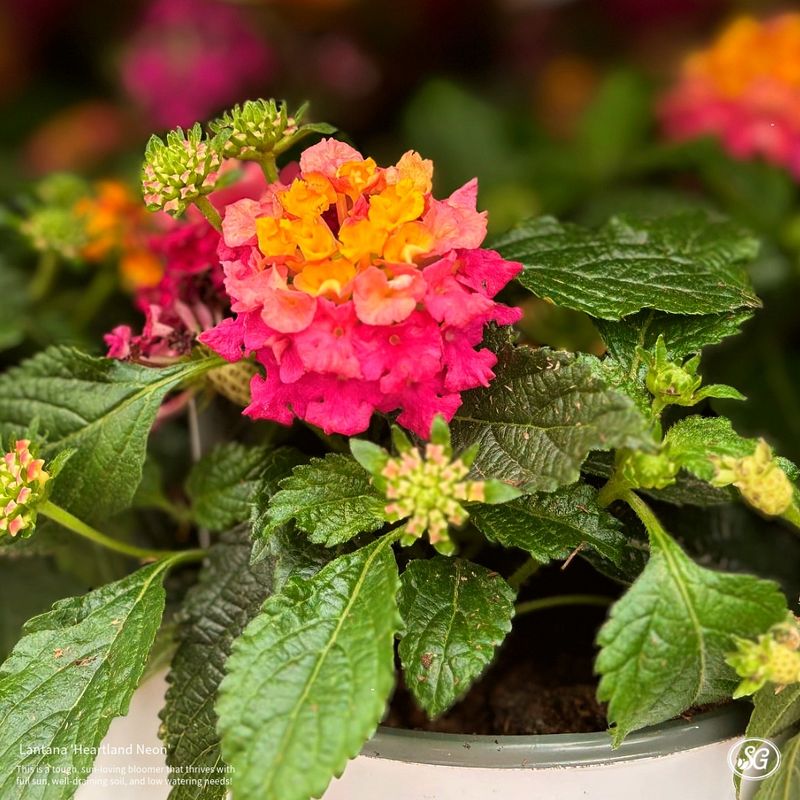
Clusters of multicolored flowers aren’t lantana’s only appealing feature—the leaves emit a strong citrus-mint scent that naturally repels mosquitoes. This heat-loving plant blooms continuously from spring through fall in most regions.
Grow lantana in large containers with excellent drainage. Place them in full sun locations around your outdoor living space. The plant’s trailing varieties work beautifully in hanging baskets, creating a protective curtain of mosquito-repelling foliage around the perimeter of dining areas.
14. Plants That Don’t Work (Despite Popular Myths)
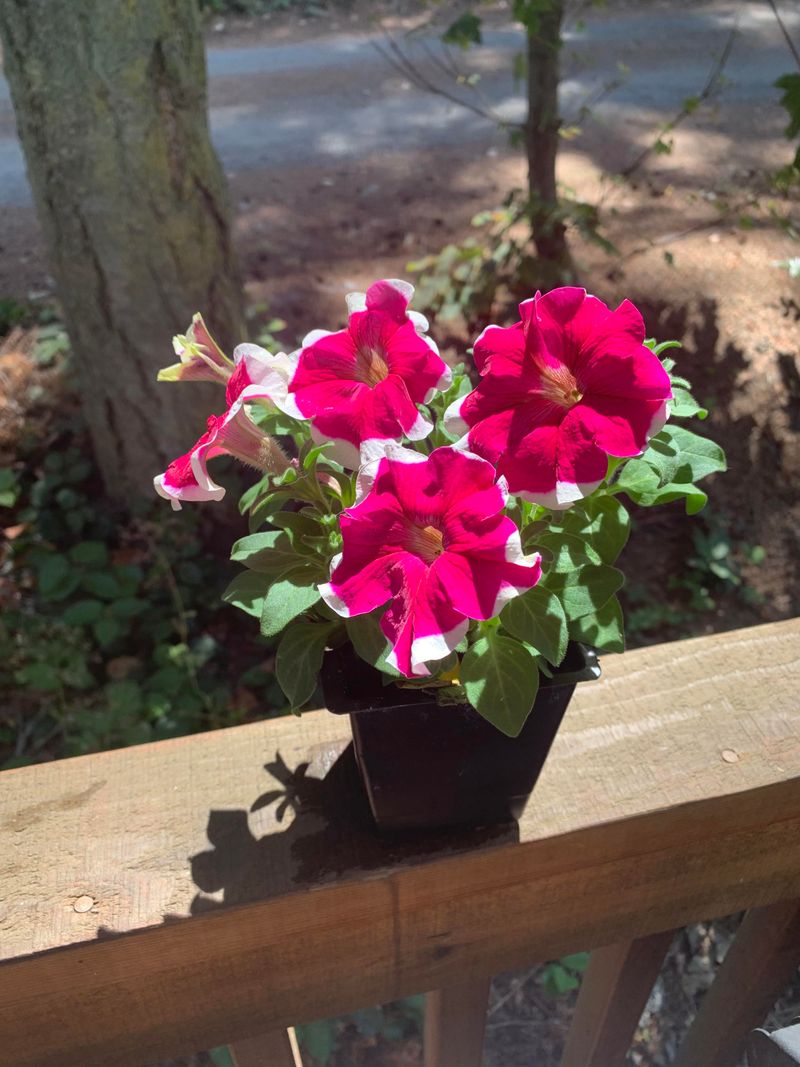
Not all aromatic plants effectively repel mosquitoes. Petunias, despite their beauty, have no proven mosquito-repelling properties. Likewise, marigolds are often mistakenly recommended—while French marigolds work somewhat, common varieties don’t affect mosquitoes.
Sunflowers, while magnificent, actually attract mosquitoes rather than repel them. Carnivorous plants like Venus flytraps catch individual insects but don’t provide area protection. Finally, tomato plants, despite their strong smell, don’t significantly impact mosquito behavior in your outdoor spaces.

